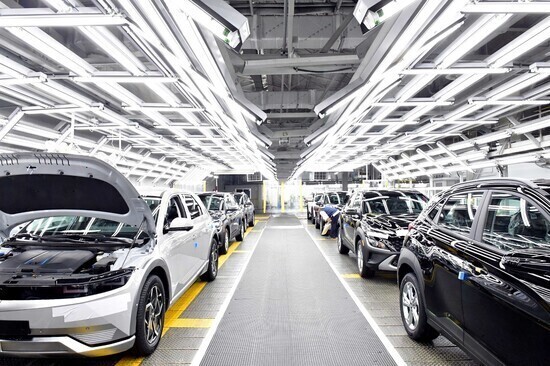Q |
| Automobile industry |
New Three-Year Compliance Window to Ease Industry Pressure
The European Commission (EC) will introduce greater flexibility for carmakers following an “intense” second meeting on Monday as part of its strategic dialogue with the automotive industry. EC President Ursula von der Leyen announced plans to propose a targeted amendment to the CO2 Standards regulation this month, shifting from annual compliance to a three-year compliance window.
Under the current regulation, carmakers must meet strict annual CO2 targets or face penalties. This year, the target for new cars sold in the EU is 93.6 grams of CO2 per kilometer. By 2030-2034, the limit will be 49.5 gCO2/km, with a full transition to zero-emission vehicles set for 2035.
“The targets stay the same. They have to fulfill the targets, but it means more breathing space for industry,” von der Leyen stated. She emphasized that the amendment aims to balance fairness for early adopters with pragmatism for those struggling to keep pace.
However, environmental advocates criticize the decision. Campaign group Transport & Environment (T&E) calls it an “unprecedented gift” to the automotive industry, arguing that delaying compliance weakens Europe’s clean car regulations and puts the region at a competitive disadvantage against China. William Todts, T&E’s executive director, warned that uncertainty in EV policies could hinder investment in charging infrastructure, battery production, and e-mobility.
Chris Heron, secretary general at E-Mobility Europe, estimated the rule change could result in 500,000 fewer electric vehicles entering the EU market by 2025. He also raised concerns about legal uncertainties and fairness for manufacturers who have already aligned with the existing targets.
In addition to CO2 regulations, the EC will unveil its Automotive Action Plan on Wednesday, which will prioritize innovation in autonomous driving and battery manufacturing. Von der Leyen highlighted the need for strong industry alliances to enhance competitiveness, stating, “We know that global competition is fierce, so we have to act big and have to be big.” The EC plans to support the battery sector by introducing European content requirements for cells and components while reducing regulatory barriers.

